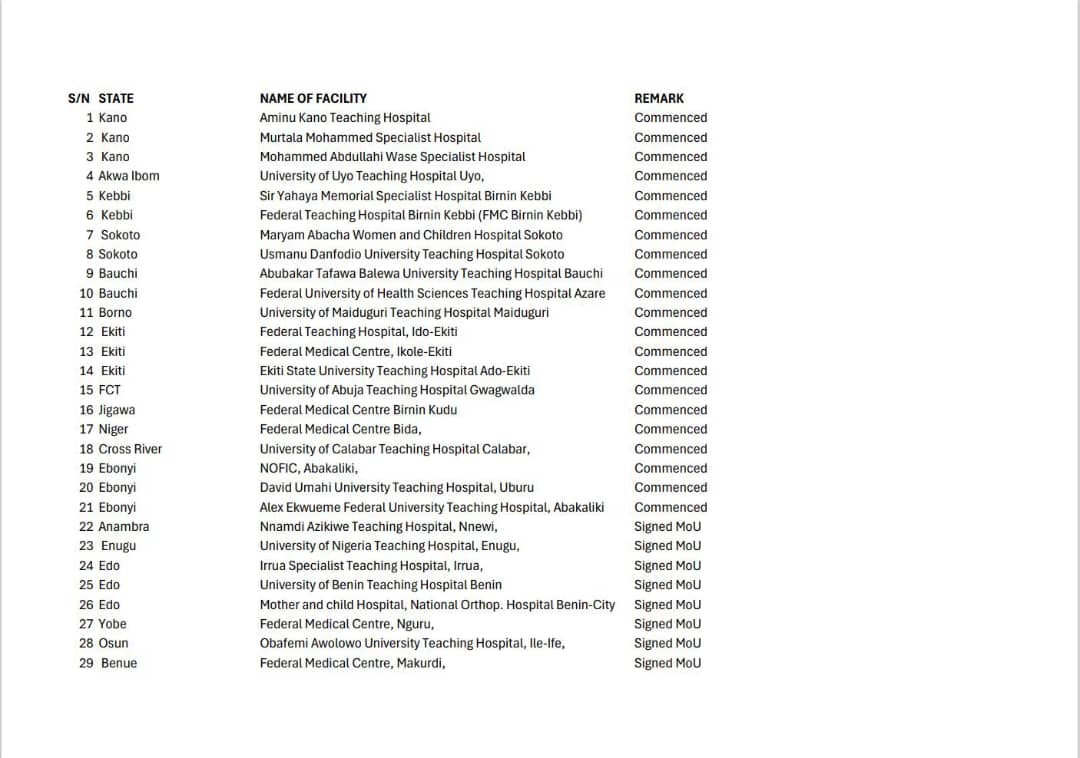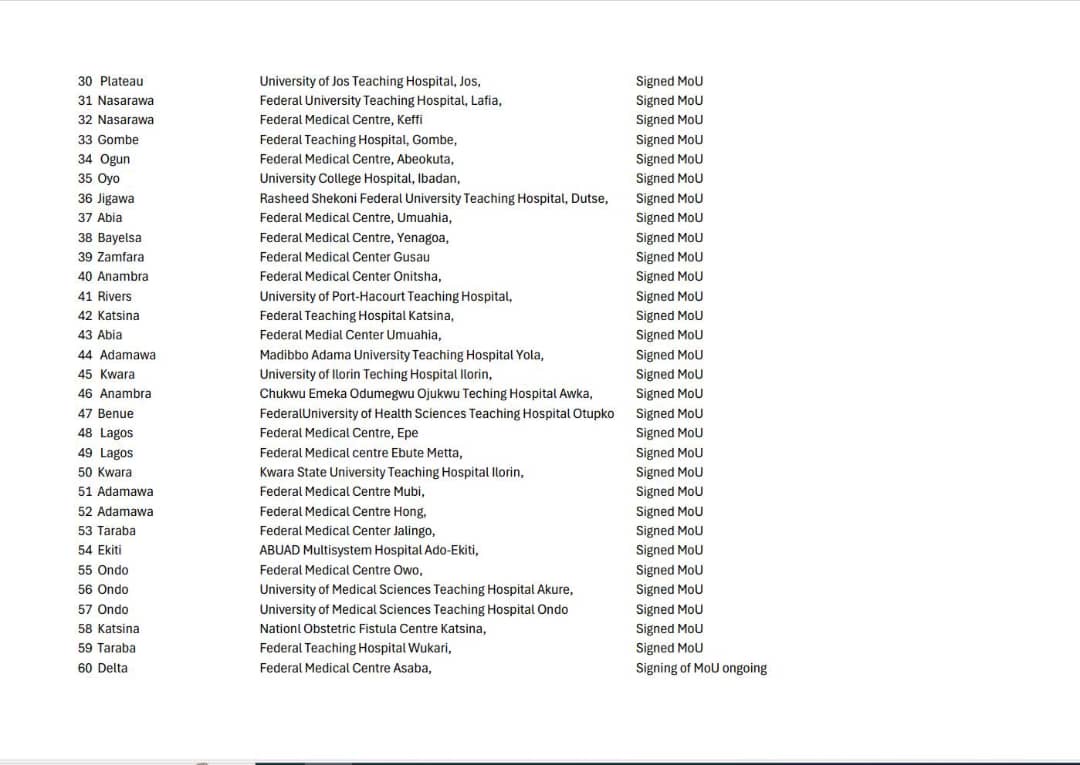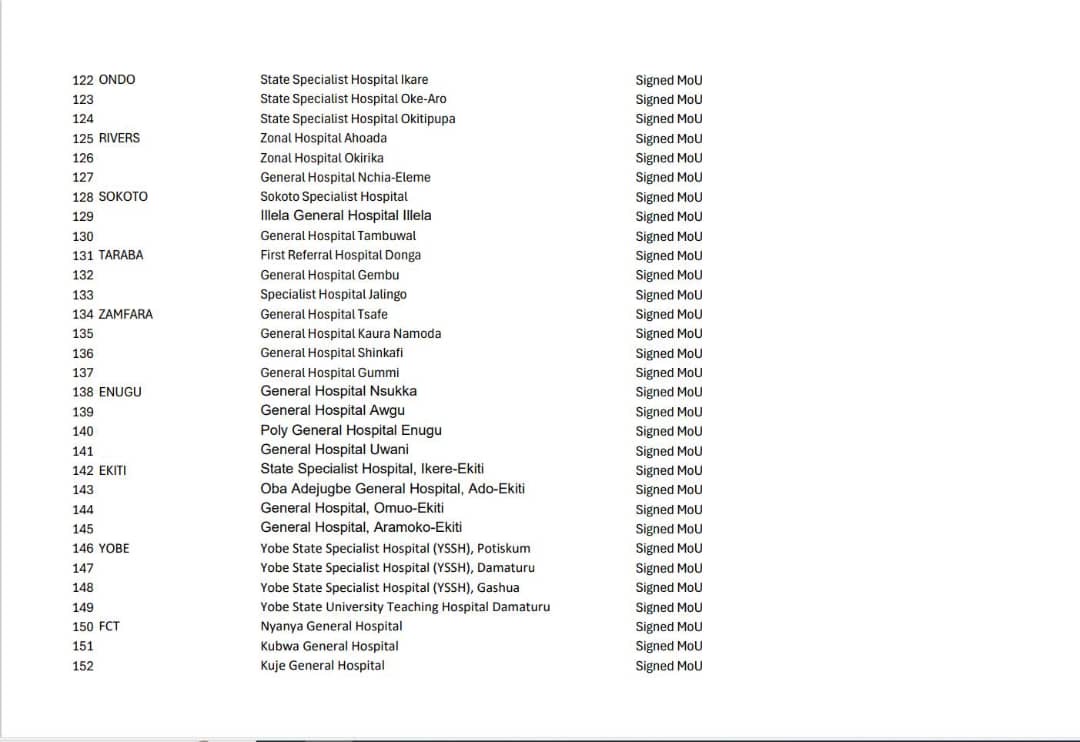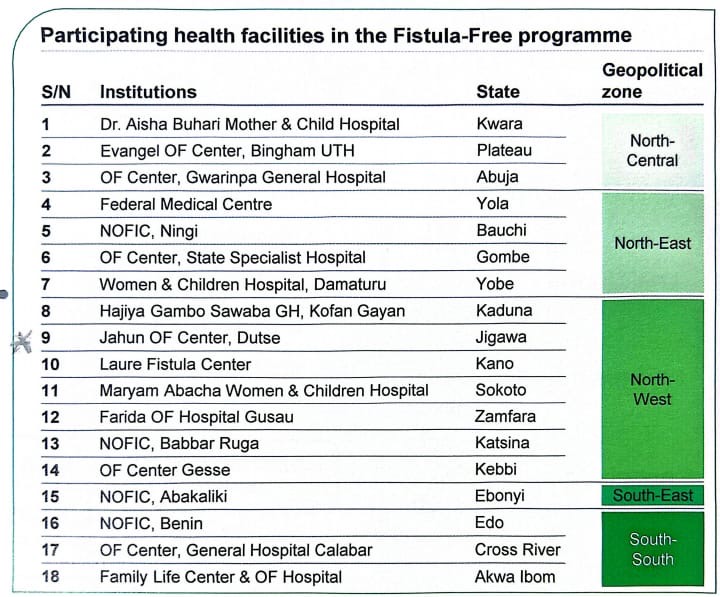Admin
Parochialism Or Competence?
Within a spate of 24 hours this week, two key developments occurred in the Nigerian economic sector.
President Bola Ahmed Tinubu confirmed the appointment of Shamseldeen Ogunjimi as Accountant-General of the Federation while the Central Bank of Nigeria (CBN) appointed 16 new directors as part of reforms within the apex bank.
The appointments did not come as a surprise to many as Ogunjimi had been nominated for the position since 2024, even before the expiration of the tenure of Oluwatoyin Madein, the outgoing accountant-general.
Similarly, the CBN had placed an internal advertisement for the post of directors following the retirement of the previous directors.
What, however, came as a surprise is that the appointments followed a particular pattern that conforms to allegations that under the current administration, a particular section of the country- the South-West, is dominating the economic landscape.
Ogunjimi, like President Tinubu, hails from Lagos State, and is taking over from Madein, who is from Ogun State and from the same geopolitical zone and ethnic group as the president.
If this was a coincidence, the appointment of 16 new directors at the apex bank makes it look otherwise.
Of the 16 new directors, eight are of the same ethnic affinity while the remaining eight were picked across the remaining over 200 ethnic groups in the country.
Those that share one ethnic affinity, Yoruba, include Ojumu Adenike Olubunmi, Director, Medical Services; Makinde Kayode Olanrewaju, Director of Procurement and Support Services; Isa-Olatinwo Aisha, Director of Consumer Protection; Yusuf Rakiya Opemi, Payments System Supervision; Vincent Monsurat Modesola, Strategy Management and Innovation; Akinwunmi Akinniyi; Banking Supervision; Adedeji Sikiru, Currency Operations and Branch Management; and Solaja Olayemi, Other Financial Institutions.
Others from other ethnic nationalities are Abdullahi Hamisu, Director of Banking Services; Jide-Samuel Omoyemen Avbasowamen; head, Information Technology; Sike Ijeoma, head, Financial Policy and Regulation, while Monetary Policy Formulation will be overseen by Oboh Victor Ugbem. Nakorji Musa is to head Trade and Exchange; Farouk Muhammad, Reserve Management; Hassan Umar, Development Finance Institutions Supervision (OFISD); and Okpanachi Moses, Director of Statistics.
This, coupled with the previous appointees from the South-West zone, has raised the question of ethnic favouritism at the expense of other parts of the country and has made the president’s economic team to appear lopsided.
This tendency was noticed very early in the life of the current administration when the president named Yemi Cardoso as the governor of the Central Bank of Nigeria and Zacheus Adedeji as the chairman of the Federal Inland Revenue Service (FIRS). All of them are Yoruba from the South-West.
Groups speak on appointments
Noticing this trend, some Nigerians attempted to call the attention of the president to the lopsidedness of appointments into positions that have to do with finance and economic wellbeing of the country.
As early as 2023, when the president was just months in office, a group, The Human Rights Writers Association of Nigeria (HURIWA), accused him of nepotism, alleging that most of the key appointments in his government were allotted to Nigerians from his ethnic group.
In a statement issued by its coordinator, Emmanuel Onwubiko, HURIWA faulted the appointments of the CBN governor and the FIRS chairman.
Speaking in the same vein, the national publicity secretary of the apex northern socio-cultural and political organisation, the Arewa Consultative Forum (ACF), Professor Tukur Muhammad-Baba, also criticised Tinubu for giving sensitive and “lucrative” appointments to persons from his southwestern part of the country.
Muhammad-Baba, a professor of Sociology, said this should not be encouraged in a “deeply fractious federation” like Nigeria.
Even the pan-Yoruba socio-cultural group, Afenifere, in November 2024, also saw reasons to caution President Tinubu over what it described as his bias and preference for the Yoruba in federal appointments.
The group made this known in a statement by its then leader, Ayo Adebanjo and the national publicity secretary, Justice Faleye respectively, in Ibadan, the Oyo State capital.
Part of the statement reads: “We can never condone the outrageous bias by Tinubu to make the Yoruba heads of all arms of the criminal justice system (EFCC, DSS, Attorney-General and Chief Justice); the economy (Coordinating Minister of the economy, CBN, Finance, Blue Economy, Digital Economy, Trade, Industries and Investment, Bank of Industry, Solid Minerals); as well as the forces (army, police, customs, immigration).”
Economic analysts observe that the president, having appointed himself minister of petroleum and made his long-time associate, Wale Edun, the minister of finance and coordinating minister of the economy, he should have spread the other slots on the economic team to other parts of the country since the two positions are central enough to determine the swing of major policy decisions.
The position of the coordinating minister of the economy gained popularity under the Goodluck Jonathan administration, when the minister of finance, apart from overseeing affairs at the core ministry, coordinated other ministers to work in tandem with the economic vision and policies of the administration.
The petroleum ministry is seen as very important due to its control of the activities in the petroleum industry, which is responsible for the country’s earnings.
Under the current administration, in addition to the position of the minister of finance and coordinating minister of the economy, the bulk of the portfolios that have to do with the economy have been placed under the supervision of people from the president’s part of the country.
Gboyega Oyetola from Osun State is the Minister of Marine and Blue Economy; Jumoke Oduwole is Minister of Trade and Industry; Bosun Tijani, Minister of Innovation and Digital Economy; Adebayo Adelabu is Minister of Power, while Dele Alake is the Minister of Solid Minerals Development.
Weekend Trust observes that key agencies that either control the country’s finances or economic development are also mostly headed by people who share the same ethnic affinity. They include the Comptroller-General of the Nigeria Customs Service (NCS), Adewale Adeniyi; Comptroller-General of the Nigeria Immigration Service (NIS), Kemi Nandap; the Economic and Financial Crimes Commission (EFCC) chairman, Ola Olukoyede, and chairman of the Presidential Committee on Fiscal Policy and Tax Reforms, Taiwo Oyedele.
Even when the president constituted a 31-man Presidential Economic Coordination Council in March 2024, the Minister of Finance and Coordinating Minister of the Economy, Mr Edun, was made the chairman of both the 19-man economic management team emergency taskforce and the 14-man economic management team.
President Tinubu also established the Economic Management Team Emergency Taskforce (EET), which also has the Coordinating Minister for the Economy and Minister of Finance as chairman.
The economic team usually designs the policies to introduce and guide the development of the economy. It also controls the bulk of the resources of the country due to the substantial amount domiciled in the ministries and agencies under its supervision.
Those in the team are considered very powerful as the economic prosperity of the country rests squarely on whatever they decide for the president.
The floating of the naira, categorising power consumers into bands and the tax reforms bills are believed to be some of the direct influence of the economic team.
‘There’s lopsided distribution’
The programme coordinator of the Social Development Integrated Centre (Social Action) Nigeria, Mr Isaac Botti, agrees that the composition of the president’s economic team is one sided. He said, “We need to transcend ethnic biases and see how we can work with the right set of people as a country – those who really understand what needs to be done to revamp the economy.”
Dr Aminu Hayatu, a political economy researcher/analyst and senior lecturer in the Department of Political Science, Bayero University, Kano, said that merit should trump any other consideration in the composition of an economic team.
He said: “While I acknowledge the importance of inclusivity, economic policy should ultimately be driven by capacity rather than regional or ethnic considerations.”
He, however, added that in a diverse country like Nigeria, broad representation could help ensure that economic policies reflect the realities of different regions.
Blast from the past
Meanwhile, some analysts have pointed out that the immediate past leader of the country, Muhammadu Buhari, started the lopsidedness during his administration. But facts on ground show that it was slightly better during the previous administration.
In September 2019 when Buhari constituted an Economic Advisory Council (EAC) to replace the administration’s Economic Management Team, he named Prof Doyin Salami as chairman; Dr Mohammed Sagagi, vice chairman; Prof Ode Ojowu; Dr Shehu Yahaya; Dr Iyabo Masha; Prof Chukwuma Soludo and Mr Bismark Rewane as members, while the secretary was Dr Mohammed Adaya Salisu (Senior Special Assistant to the President on Development Policy).
In his cabinet, Buhari appointed himself Minister of Petroleum; the Minister of Industry, Trade and Investment was Niyi Adebayo; while Isa Ali Pantami was Minister of Communication; Zainab Ahmed, Minister of Finance; Sabo Nanono, Minister of Agriculture and Rural Development; Babatunde Fashola, Minister of Works and Housing; and Olamilekan Adegbite – Minister of Mines and Steel Development.
Nigerians should be concerned about competence – Presidency
The Presidency, while reacting to the development, said there’s nothing wrong with the appointments since they are all Nigerians.
The Special Adviser to the President on Information and Strategy, Mr Bayo Onanuga, told our reporter that once the appointees are Nigerians and they are qualified, then the matter is settled.
“I don’t see anything wrong with the point you are raising. Are they not qualified?” he asked.
On the appointment of the Accountant-General of the Federation, he explained that it was earlier announced, but when it was pointed out that certain rules were not followed, it was stepped down.
“And they now went through a rigorous selection process. More people were invited, and at the end of the day, the man still came tops. So, I think that as Nigerians, we should not be looking at the appointment from the prism of region, ethnicity, religion or something like that, what we should be thinking about is whether they are qualified or not. Are they square pegs in square holes? That should be the issue.
“That is why we keep missing it – we always emphasise the wrong things. Are all those people not qualified? Is the FIRS chairman not doing well? Is he not bringing more revenue to this country?
“Is the CBN governor not doing well? Look, we should be looking at competence and ability to perform. I think that’s what should matter, not where somebody comes from.”
[DailyTrust]
US conducts first firing squad execution in 15 years
Sixty-seven-year old Brad Keith Sigmon, an inmate at the South Carolina Department of Corrections in the United States, was executed by firing squad on Friday.
It was the first such execution in the US since 2010, and the fourth since capital punishment was reinstated in 1976, according to the Death Penalty Information Center.
Sigmon selected the firing squad out of three state-approved methods of execution; others are lethal injection or the electric chair.
Convicted of double homicide, he was declared deceased by a physician at 6:08 p.m. ET, officials announced at a news conference.
Sigmon was found guilty of the deaths of his former girlfriend’s parents in 2001. He kidnapped the ex-girlfriend after the murders, but she broke free.
“I want my closing statement to be one of love and a calling to my fellow Christians to help us end the death penalty,” Sigmon appealed in a statement.
The convict also quoted Bible verses on forgiveness, and said, “Nowhere does God in the New Testament give man the authority to kill another man.”
Sigmon’s attorneys filed a petition to stop his execution, seeking executive clemency and commutation of the death penalty to life imprisonment without parole.
The lawyers noted that he committed the crimes and “stood trial while in the grip of an undiagnosed, inherited mental illness.”
But the last minute push was unsuccessful as the Supreme Court and South Carolina Governor Henry McMaster declined to approve leniency.
[DailyPost]
Wumi Toriola reflects on disappointments before ‘Queen Lateefah’ success
Popular actress and filmmaker, Wumi Toriola, has opened up about the setbacks she faced before the success of her film, ‘Queen Lateefah.’
The film became one of the highest-grossing Nigerian films of 2024, earning N350 million at the box office.
In an interview with The Nation, Toriola revealed that the journey to making ‘Queen Lateefah’ was not without challenges, as she encountered disappointments and delays before finally bringing the project to life.
“I would have shot ‘Queen Lateefah’ four years ago, but it didn’t happen. I had hitchhiked with my story, and I wasn’t completely satisfied, so I kept rewriting it. I faced disappointments, but what I’ve learned is that whenever you come out, just come out well. The place of preparation was helpful for me,” she shared.
Despite the obstacles, the actress is now celebrating the film’s overwhelming success, acknowledging that the long wait and meticulous preparation ultimately paid off.
Looking ahead to 2025, Toriola hinted at bigger projects and major collaborations.
“We are expecting something huge—more collaborations, but in a big way,” she revealed.
With ‘Queen Lateefah’ setting a high bar, Toriola also expressed the pressure of surpassing her record. “It makes me feel great and at the same time gives me a lot of responsibility, because one will want to get better. Beating that record is a lot of responsibility,” she stated.
[TheNation]
Ex-gov Dickson, opposition senators rally support for suspended Natasha
A former Bayelsa State Governor, Seriake Dickson, has solicited support for Natasha Akpoti-Uduaghan.who was suspended from the Senate on Thursday.
Leading a delegation of senators from opposition political parties to visit Natasha at her home on Friday, Dickson said his engagement with the tax reform bills kept him away from the Senate proceedings on the day of Natasha’s suspension.
Dickson said as humans, senators have their low and high moments “and it is a tradition for Senators to support each other during these moments.”
“The public may recall that, for the past three days, I was attending the three-day workshop on the Tax Reform Bills which started on Wednesday, 5th of March and ended this evening, March 7.
“This is why I was not available yesterday to sit as a member of the Committee on Ethics, Code of Conduct, Privileges and Public Petitions in respect of the issues concerning our colleague Distinguished Senator Natasha Akpoti Uduaghan’s suspension, haven been assured by the Committee Chairman that the hearing would hold on Wednesday the 11th of March for which notices had already been issued. I was not notified of the emergency seating yesterday.
“This evening, after concluding the retreat, I led a delegation of some senators of opposition parties on a visit to our colleague Senator Natasha and met with her and her husband at their home.
“We offered words of encouragement, prayers and advice on a quick resolution of the issues surrounding her suspension,” he said.
“Having heard more from her and her husband for the first time, I will discuss with other colleagues on how to intervene and engage with the leadership of the senate to resolve the issues as soon as possible,” he added.
Akpoti-Uduaghan was suspended on Thursday for six months after she refused her new seat in the upper legislative chamber.
The dispute escalated into allegations of sexual harassment by the Kogi senator against Senate President, Godswill Akpabio.
Her suspension has sparked widespread debate and criticisms, particularly from women’s rights groups and civil society organisations.
The Peoples Democratic Party has condemned Akpoti-Uduaghan’s suspension, saying the move reeks of a grand cover-up attempt from Akpabio.
Netanyahu urged to implement Gaza deal in full
More than 50 freed Israeli hostages urged Prime Minister Benjamin Netanyahu to fully implement the Gaza ceasefire deal and secure the release of those still held in the Palestinian territory.
“We who have experienced the inferno know that a return to war is life-threatening for those still left behind,” a group of 56 freed hostages said in a letter posted on the social media platform Instagram on Friday evening.
“Implement the agreement in full, in one single manoeuvre.”
Among those to sign the letter was Yarden Bibas, whose wife and two young sons died while held captive in Gaza.
Their plea came as Hamas released a video showing Israeli hostage Matan Angrest alive, footage that his family said had left them “shaken”.
In the footage, Angrest, who turned 22 in November, also calls on the Israeli authorities to implement the second phase of the Gaza ceasefire deal.
The first phase of the Gaza ceasefire ended on March 1 after six weeks of relative calm that included exchanges of Israeli hostages for Palestinian prisoners, though hostilities have not resumed.
While Israel has said it wants to extend the first phase until mid-April, Hamas has insisted on a transition to the second phase, which should lead to a permanent end to the war.
Of the 251 hostages taken by Palestinian militants during the 2023 attack on Israel, 58 remain in Gaza, including 34 the Israeli military has said are dead.
On Saturday, a high-level Hamas delegation is expected to hold talks with Egyptian officials over the second phase of the ceasefire, two senior Hamas officials told AFP the day before.
“The delegation will meet with Egyptian officials on Saturday to discuss the latest developments, assess progress in implementing the ceasefire agreement and address matters related to launching the second phase of the deal,” one official told AFP.
During its talks with Egyptian mediators, the Hamas delegation will demand that Israel “implement the agreement, begin negotiations for the second phase and open the border crossings to allow humanitarian aid into the Gaza Strip,” he said.
The Palestinian militant group wants a “comprehensive agreement that ensures a permanent and complete ceasefire,” the other official said.
He said Hamas’s demands for the second phase include a full Israeli withdrawal from Gaza, an end to the blockade, the reconstruction of the territory and financial support based on the decisions of this week’s Arab summit in Cairo.
He also said that Hamas was ready to “negotiate a prisoner exchange to release all Israeli prisoners including those with American citizenship”.
AFP
[OPINION] Akpabio’s Fear Of the Unknown - Emmanuel Aziken
Nigeria joins the world in celebrating International Women’s Day with gender activists mourning the decimation of their numeral strength in governance.
The 1999 Senate had three women: Senators Florence Ita-Giwa, Stella Omu, and Khairat Gwadabe. However, 25 years later, it is a mark of the nation’s disrespect for gender equality that the IWD would be marked with only three women as senators in a chamber of 108 senators. Senator Natasah Akpoti-Uduaghan, who could have been the fourth female senator, was on Thursday suspended from the chamber in what many have described as the most repressive exertion of testosterone in the chamber since 1999.
According to the Senate resolution, she should not present herself as a senator of the Federal Republic anywhere.
With women constituting just 3.6% of the 10th Senate and another 17 women in the 360 House of Representatives, representing 4.7%, there is no doubt that Nigeria falls short of gender balance in parliament.
As of 2024, the average representation of women in African parliaments was 26% with the majority of the countries having failed to attain the 40% benchmark for gender balance.
Only five countries, Rwanda with 61% of parliamentarians being women, South Africa with 46.7%, Namibia with 44.2%, Mozambique with 42.4% and Ethiopia 41.5% met the mark.
It is remarkable that Nigeria was at one time improving in its gender representation index with about 10 females in the Senate while the Peoples Democratic Party, PDP was in power.
However, since 2015 that figure has progressively decreased to the level it is today in damning rebuke of Nigeria’s assertions on the Beijing Conference of affirmative action as chorused exactly 30 years ago.
Rwanda, South Africa, and Namibia, which topped the list in gender balance, also came in the top half of the Mo Ibrahim Governance Index, proving to some degree that women representatives in government help to promote good governance.
There is no doubt that the disappearance of women in parliament is correlated to the increasing bastardisation of the electoral process in the country. More women, like many faint-hearted men, have despaired over the intrigues and violence that lead to the election of our lawmakers.
Only the women who can fight like men are able to scale through the emotional and physical skirmishes that is called election in Nigeria. That perhaps explains the controversial claims of Senator Florence Ita-Giwa when she poohpoohed the claims of sexual harassment that Senator Natasha Akpoti-Uduaghan raised against Senate President Godswill Akpabio.
According to Ita-Giwa, any woman who can survive the intrigues to win an election into the Senate cannot talk about sexual harassment! That is still a controversial claim, though.
So as Nigeria marks the International Women’s Day today, there is bound to be a particular focus on the Senate and deeper interrogation of the issues that led to the six months suspension of Mrs Akpoti-Uduaghan from the Senate.
The allegation of sexual harassment brought by her against Akpabio was the first time such an issue would be brought against a presiding officer since the advent of the Fourth Republic. It is, however, not true that the Senate has been very clean of sexcapades. Lurid tales of illicit affairs occur, especially when Senators go on retreats with some ad-hoc committees reportedly being mandated to arrange young ladies for the comfort of male senators.
In one such retreat many years ago, a presiding officer was reportedly slapped by his wife who saw him entangled with a lady while the male senators were ‘communiquing.’
The jury is still out there as to the transparency and probity embarked by the 10th Senate in dealing with the allegation brought against Akpabio by Akpoti-Uduaghan.
This case, along with other pernicious legislative conduct of the 10th Senate has further diminished the institution. The crass disobedience to a court order and the rush to indict and punish the female lawmaker do not portray the Senate in a good light.
While many believe that Akpabio may indeed be innocent of the allegation made by Akpoti-Uduaghan, the rush by the Senate to punish her was largely indecorous. Akpabio could well have appeared before the Senate investigative committee and dared Akpoti-Uduaghan to produce her evidence.
The fear is that Akpabio did not want to go that route simply because he may have been afraid of the eruption of other unpalatable issues between him and Akpoti-Uduaghan, which are essentially not relating to sex.
As Nigerians have been made to recall, the suspended senator’s husband, Chief Emmanuel Uduaghan had been a long-standing family friend of the Akpabios. Their relationship predated the marital engagement between Uduaghan and Natasha. Akpabio confessed to attending and sleeping over during the marriage in Kogi State.
Indeed, Akpabio’s communication strategist, Mr Ken Okulugbo, while defending his principal on Channels Television on Thursday night confessed that he was recommended for his job by Chief Uduaghan.
So, being top players in the Nigerian political space, there is no doubt that the Akpabios and Uduaghans would have shared secrets and collaborated in their respective journeys to dominance in their political and business spaces. Along the way, they would have known one another’s unpalatable issues.
So, one conspiracy theory emerging is that the Senate President brought the weight of his powers on Natasha not because he was guilty of sexual harassment of a family friend but because of the fear of the unknown!
[OPINION] A Letter to Speaker Meranda - Ugoji Egbujo
You were the deputy speaker. Then, you became the first female speaker. And now you are the first speaker to become a deputy speaker in Africa. Madam, it’s not your fault but you need to quit. Your middle name is not Rollercoaster
When Obasa was removed, lawmakers said he was corrupt. If it were in the 18th century, they would have looked for a guillotine. They shouldn’t do this to themselves. It’s a most despicable capitulation. They said he built a gate with millions upon millions. They said he was a bad example to our children. Following the many vociferous allegations of corruption and high-handedness, 32 out of the 40 Lagos lawmakers voted to remove him. A removal can’t be more unanimous. They said his removal was good riddance to bad rubbish. That was last month.
Now, the same Obasa has returned. And rather than ignominy, he has cornered glory. You have succumbed to intimidation and resigned to allow the perfidy. You can call it loyalty to your party leaders. You can call it party supremacy. Beautiful euphemism. Others call it Baba sope. You were almost an Amazon. Sadly, you all turned out lily-livered.
Collectively, you lamented the invasion of the hallowed legislature by the DSS. Was that your leaders in trying to whip delinquent children into line? The DSS later said they had come to provide security. But you knew what they came to do. And you and your colleagues swore to resist the transgressions. How, then, did you chicken out without a whimper?
You had sneered as Obasa besieged the legislature with a gang of policemen to forcibly enter it. Do your leaders behave like area boys? Do they have any regard for the rule of law? If this was just leaders persuading followers, why the easy recourse to state banditry? All the lawmakers pointedly condemned both invasions as rape and vowed to resist the affront to democracy. Irked by the abomination, the people stood to support you against your oppressors. Then you all chickened out. The international community is amused.
When Obasa returned from overseas and started to thump his chest, many had feared for you. Because if the drummer of the strange rhythm he was dancing to was in a bush in Abuja, then the entire House of Assembly would need courage to avoid humiliation. But you all rose to the occasion to a cost the filthy meddle some hands of the unseen intruder with moral defiance. And having announced your readiness to assert yourselves like free men and women who have broken their yoke, this capitulation is unpardonable cowardice.
A man overruled an entire state legislature. In his youth, he had rebelled against autocracy. Now he is the Citadel, the fortress of feudalism. So he can send some oldmen to deliver an ultimatum to the lawmakers, to ask them to lick their vomitus. Rather than pack up and run away, if they were too weak to fight, the lawmakers sat and started to weep helplessly in the open. The same people who had collectively vowed to defend their dignity and democracy were cowering and crying like babies. They endured the torment of going through the gut-wrenching ritual of re-electing Obasa. None of them covered his head with a tattered basket and spat some inventive at the oppressor. None of them had the balls to walk away. They were scared of the godfather.
Some said they were crying for you, Meranda. But nobody is deceived. They were reduced to houseboys. Presumptuous houseboys. They were made to re-elect Obasa, who they had deceived as unfit to lead. Meranda, you stepped out for him to step in. You need to step away. Your CV now reads like it was written in Oluwole. The centre of excellence has been defiled. It stinks
Make no mistake, Madam deputy speaker, it’s not party supremacy. It’s party destitution. The party has been castrated. Otherwise, there is no manifestation of party supremacy greater than 75% of the legislators and their constituents have their way on who becomes speaker. The party can weigh in and influence outcomes. But the party cannot make an entire legislature swallow its vomitus in the open like this. The real party spoke through the legislators. But one man overruled the party. Party supremacy is not a nebulous concept which can be used to convert lawmakers into errand boys of the godfathers. It is not an autocratic spanner. It exists to foster inclusion and democratic participation and not install a civilian dictatorship through the backdoor.
When you became speaker we saw you herd the lawmakers to the GAC to receive blessings. You said they blessed you. We said you were subjecting the legislative arm of government to the dictates of a cabal. Now you know. That fanciful GAC is a device in the hands of one man to make his dictatorial control of the state look collegiate. The subterfuge has been exposed. The party is decidedly a one-man show.
Madam, you surrendered the mandate of the people. You were not an acting speaker. Throw in the towel, madam. Your return to your old seat is a disservice to womanhood. You cannot endorse this shenanigan by playing the fool. Your dignity matters. Your health matters too. Your continued presence in that assembly will damage not just your mind but public health. The Return of Obasa is a head-spinning drama. Disappear from the House, madam. So that the public can catch their breath.
E jor ma. You are too legit not to quit. Eko oni ba je o
You’re very ugly, Ronaldo tells lookalike fan
Al Nassr forward Cristiano Ronaldo has made headlines after bantering with his lookalike fan.
The all-timeleading goal-scorer in football told the fan on Friday at the Al Awwal Park in Riyadh, Saudi Arabia that he was “very ugly”.
Ronaldo was alongside his teammates, near the touchline, doing the pre-match warm-up, as Al Nassr was set to take on Al Shabab in their Matchday 24 of the Saudi Pro League 2024/25 season.
“Bro you don’t look like me (x2), you’re very ugly,” said Ronaldo.
“You are the best bro, wallahi,” said the lookalike fan.
Although Ronaldo scored his team’s second goal, it was a frustrating game for Al Nassr as they were held 2-2.
[Vanguard]
FULL LIST: FG designates 154 facilities for free obstetric care, 18 VVF surgeries
Ali Pate, minister of health and social welfare, says the federal government has designated 154 health facilities nationwide to provide free treatment for women with obstetric complications.
Pate made the announcement on Friday during his appearance on ‘Politics Today’, a programme on Channels Television.
The minister also announced 18 centres across the nation for free treatment of vesicovaginal fistula (VVF).
An obstetric complication is a difficulty or abnormality that arises during the process of labour or delivery.
Obstetric complications are disruptions or disorders that can occur during pregnancy, labour, delivery, or the early postpartum period, affecting the health of the mother or baby.
Common examples include preeclampsia, gestational diabetes, preterm labour, and postpartum hemorrhage.
Pate said the health and well-being of Nigerians are fundamental to President Bola Tinubu’s vision, prioritising reduced maternal deaths by ensuring no woman dies due to inability to afford treatment.
See full list below







[OPINION] New Insights Into “Badamasi,” “Gbadamosi,” and IBB’s Paternal Heritage - Farooq A. Kperogi
Former President Ibrahim Badamasi Babangida’s autobiography triggered questions about the onomastic etymology of “Badamasi,” his former last name, which appears to share historical and semantic kinship with the Yoruba “Gbadamosi.” It also activated interest in his paternal heritage about which he has been strategically coy, which I captured in my last column.
Because I know that the best system of inquiry for facts is necessarily question-oriented, self-critical, and cumulative, I shared a perspective I had heard about the provenance of Badamasi but expressed doubts about its reliability and historical accuracy and invited further reflections from others.
Saturday Tribune editor Lasisi Olagunju took up the challenge and, relying on insights from the late Sheikh Adam Abdullah El-Ilory, proposed that Badamasi originated from Ghadames (sometimes spelled Ghadamis), a historic Berber town in what is now Libya.
The town’s citizens are called Ghadamisi. It’s in line with the Middle Eastern practice of adding “i” to the end of the names of villages, towns, cities, and countries to form demonyms. Bukhari (which we domesticated as Buhari in Nigeria), for instance, means a native of the town of Bukhara, now in Uzbekistan, a West Asian nation that used to be a part of the Union of Soviet Socialist Republics (USSR).
Olagunju also referenced a fawningly Anglophilic, pro-colonial autobiography written in Arabic by a certain Abd Allah el-Ghadamisi, who arrived in Kano in 1903, titled, Your Humble Servant: The Memoirs of Abd Allah Al-Ghadamisi. He wondered whether this might be the book IBB mentioned as his grandfather's favorite and that inspired him to name his son after its author.
He then suggested that the Yoruba Gbadamosi is more faithful to what he thinks is the original form of the name than the Hausa Badamasi since the voiced labial-velar plosive “gb” found in many Niger Congo languages, including Yoruba, is closer to the voiced uvular fricative “gh” in Arabic.
Well, Olagunju’s proposition appears to suffer a factual collapse when it is burdened with the weight of historical, chronological, and even sociolinguistic evidence.
First, anyone who reads Professor Razaq ʿDeremi Abubakre’s 2017 book chapter titled “Stefan Reichmuth’s Wanderings in Arabicized and Islamized Yorubaland” will come across an Ilorin Muslim scholar and poet by the name of Badamasi “from Ile Saura, Agbaji, Balogun Ajikobi Ward, who was one of the first people to produce Yoruba poetry in Arabic script (p.373).” He died around 1891.
This suggests that even Yoruba Muslims have borne the name Badamasi since at least the 1800s, years before Abd Allah el-Ghadamisi appeared in Kano.
Second, it is unlikely that Abd Allah el-Ghadamisi’s autobiography is the book IBB’s grandfather was fond of and that students of Arabic in Hausaland read for pedagogical and spiritual nourishment because the commentary on the book by Muhammad S. Umar and John O. Hunwick, which Olagunju references, describes the book as betraying “imperfect knowledge of written Arabic” and full of “simple errors of Arabic grammar.”
Such a book can’t be a model that Islamic scholars venerate and teach. In any case, it wasn’t a piece of Islamic scholarship. The memoirs, Umar and Hunwick point out, “construct a discourse that portrays colonialism positively through a particularly laudatory proclamation of the good deeds of colonial authorities….”
Third, Olagunju’s claim that “Because, sometimes an author gets more famous than his work, al-Ghadamisi’s name appears to have overwhelmed the book’s title” doesn’t seem to be true. Only one copy of Abd Allah el-Ghadamisi’s book has survived, according to Umar and Hunwick.
Fourth, although traders and Islamic scholars from Ghadames have lived in Hausa land since at least the 16th century, sociolinguistic evidence suggests that it is implausible for Hausa speakers to domesticate the Arabic phoneme “gh” to “b.”
When Hausa speakers borrow Arabic words with the phoneme “gh,” which doesn’t occur naturally in Hausa, they adapt it to "g" (and occasionally to “k”) but never “b.” So, it’s socio-linguistically improbable that Ghadamisi would ever become Badamasi to Hausa speakers. It would most likely be Gadamisi.
Now, what might be the root of Badamasi? Someone on Facebook by the name of M.Y. Kabara (I wonder if he is a progeny of the famous Nasiru Kabara family in Kano who died in my final year at Bayero University) pointed me to Arabic sources that seem to definitively show that the name Badamasi owes its presence in (northern) Nigerian Muslim onomastic universe to an Egyptian poet by the name of Muhammad bin Ahmed bin Ismail bin Ahmed Al-Sharaf Al-Badmasi Al-Masri. (Miṣr is the Arabic name for Egypt).
He was born in 1808 AH (equivalent to around 1405) in the small village of Badamas and died in Mecca at the age of 40. He was famous for a book of Arabic poetry he wrote in praise of Prophet Muhammad (SAW) titled al-Qasīdatul Mukhmasah, which is very popular with Sufi Muslims and Arabic students in (northern) Nigeria.
I am certain that it’s the book IBB’s grandfather loved so much that he named his son after it—like many people in the North did and still do.
Kabara pointed out to me that because “every quintet in Arabic poetry can be called ‘mukhmasah,’” the book of poetry has come to be known by the name of its author to differentiate it from similar works.
According to Dr. Ihab El-Sherbini, author of the book Stories of Mansoura's Streets, Badamas, the poet’s hometown, used to be called “Potamos," which means “river,” but that Copts (descendants of ancient Egyptians who are now mostly Christians that are associated with the Coptic Church) called it Badamos. After the Arab conquest of Egypt in the 7th century, Badamos evolved to Badamas.
Over time, the Badamas village ceased to be territorially independent. It’s now a neighborhood of the Egyptian city of Mansoura.
Based on this new knowledge, I am prepared to suggest that Gbadamosi and Badamasi are mere onomatological false friends, that is, they are names that sound alike but that are actually different and descended from different sources.
I suspect that the Yoruba Gbadamosi traces descent from Ghadamisi, most probably from Abdallāh b. Abī Bakr al-Ghadāmisī, a 17th-century Arabic poet and Islamic scholar born in Timbuktu who wrote the famous Manāhij al-Sālikīn fī Manāfiʿ al-Qurʾān al-Karīm (“Paths of the Seekers to the Benefits of the Noble Qur’an”) that is popular with West African Sufis.
Curiously, the resolution of the etymology of IBB’s middle name coextends with new hints I’ve encountered about the probable ethnic identity of his paternal ancestry.
The village of Kumurya in Kano where IBB told a biographer his paternal roots are located was founded by the Agalawa, a historical trading community in Hausaland, originally of Tuareg (Berber) stock who migrated into the Kano region in the 18th century.
Though now fully assimilated as a sub-group of the Hausa people, the Agalawa trace their ancestry to nomadic Tuareg origins in the southern Sahara. I owe this insight to Rabiu Isah Hassan who first pointed it out to me on Facebook and provoked me to read further.
In his 2005 book titled Ecology and Ethnography of Muslim Trade in West Africa, Paul E. Lovejoy points out that early Agalawa immigrants in Hausaland occupied a lowly social status because “Most had been enslaved from Sudanese populations (p. 16).” They were derisively called “Bugaje” (is the famous Dr. Usman Bugaje of Agalawa origins?) as a collective plural and “Buzu” as a singular form.
Over time, they acculturated, dominated commerce, became prominent in Islamic scholarship, and have now become indistinguishable from the native Hausa population, except that they tend to have a lighter complexion than Hausa people, which causes many people to mistake them for Fulani.
Is IBB aware of this history of his paternal ancestry but chose to conceal it for fear of exoticizing and alienating himself, especially in the eyes of southerners who tend to delegitimize people’s Nigerian origins when they find out that the ancestral origins of (mostly northern) people can be traced to spaces outside what is now Nigeria?
No northerner would question the legitimacy of anyone’s Nigerianness because of the accident of the location of their distant ancestral roots. It's a consequence of the originary syncretism of modern northern identity. We are all mixed with all sorts of stemma from a vast array of places because we were never an insular, landlocked people.
Many of Kano’s prominent merchant dynasties, for example, have Agalawa roots, a famous example being the family of Alhaji Alhassan Dantata, who was West Africa’s richest man in the early 20th century. Since Aliko Dangote’s mother is from the Dantata family, it means he is at least half Agalawa. He himself might even be ancestrally Agalawa.
What’s there to conceal about this, especially because our heritage—ethnicity, linguistic group, even religious traditions—is merely incidental to us. We didn’t choose it, so there is no basis to be proud or ashamed of it.






![[OPINION] Akpabio’s Fear Of the Unknown - Emmanuel Aziken](/media/k2/items/cache/03e7eed17562e90e065e9a02e0d6fac0_Generic.jpg)
![[OPINION] A Letter to Speaker Meranda - Ugoji Egbujo](/media/k2/items/cache/e6662f15b874e49b5be7c373d0cd1b6f_Generic.jpg)


![[OPINION] New Insights Into “Badamasi,” “Gbadamosi,” and IBB’s Paternal Heritage - Farooq A. Kperogi](/media/k2/items/cache/0afc24fe823cd089e6d2f91563db6b8e_Generic.jpg)